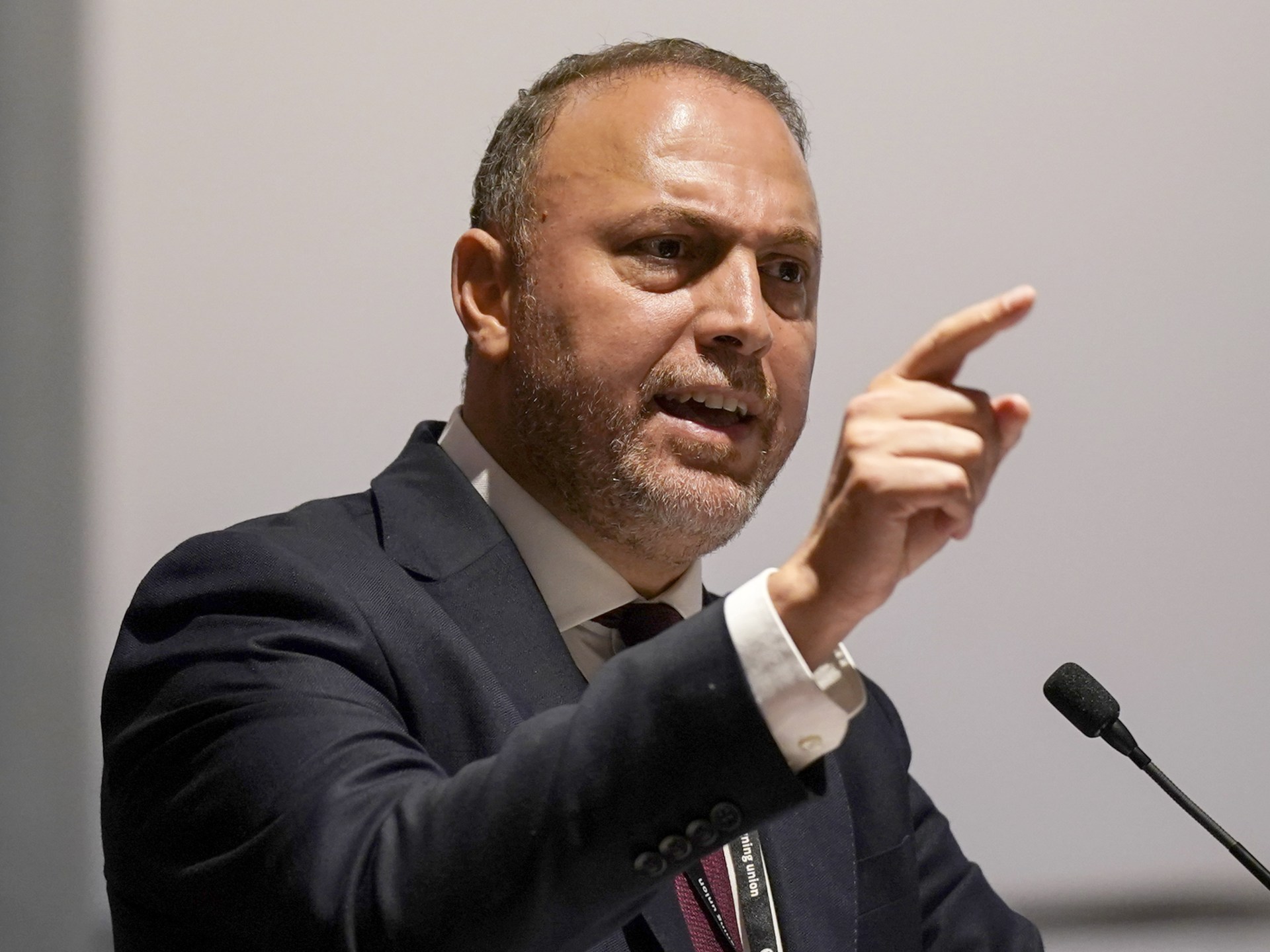Zomlot stressed that recognizing the State of Palestine is a right, not a charity (Getty)
The Palestinian Ambassador to the United Kingdom, Hossam Zomlot, believes that any possible recognition by Britain of the State of Palestine is not a mere benevolence, but rather considers it an “expected right,” stressing that this must come based on “historical, moral, political, and legal responsibility.”
In an interview with the Turkish Anadolu Agency, Zomlot described the recent statements of British Foreign Secretary David Cameron about the possibility of recognizing a Palestinian state. It is “important,” noting that it represents the first statements from a British minister confirming that recognition of a Palestinian state is not a result of the negotiation process, but rather may be a starting point for it.
Recognition is a Palestinian right
The Palestinian ambassador stressed the importance of actual movements, considering that recognition is a Palestinian right, not a charity. He considered British recognition of a Palestinian state a historical, moral, political and legal responsibility, pointing to the promise of former British Foreign Secretary Arthur James Balfour to establish a homeland for the Jews in Palestine without consulting the Palestinians, which contributed to the establishment of Israel.
He added that correcting this “historical injustice” must be practical and not just talk.
In 1917, Balfour sent a letter to Lord Lionel Walter Rothschild, one of the leaders of the Zionist movement, in which he promised them the establishment of a homeland for the Jews in Palestine. This promise is a major factor in establishing the State of Israel on the land of Palestine occupied in 1948.
Commenting on the moment during which Britain will correct the “historical injustice” that occurred, Zomlot pointed out that the matter requires actual action, not just talking about it.
Although Britain, the United States and other Western countries support the idea of establishing an independent Palestinian state living side by side with Israel as a solution to the conflict in the region, they stressed that Palestinian independence must come through a negotiated settlement.
Israel rejects the establishment of a Palestinian state
Last January, Israeli Prime Minister Benjamin Netanyahu and a number of his government ministers announced their rejection of the establishment of a Palestinian state in any scenario after the ongoing Israeli war on the Gaza Strip for more than 4 months.
Zomlot explained that Israel's opposition to a permanent ceasefire in Gaza reflects Netanyahu's personal priorities at the expense of the interests of the region and the world, at a time when regional partners such as Qatar, Egypt and others are making great efforts to achieve an immediate, permanent and comprehensive ceasefire in Gaza.
The Palestinian ambassador to London stressed the need for international powers, including the United States, to exert full pressure on Netanyahu in particular.
He warned against Netanyahu's attempt to drag countries into his immoral paths of wars, reprisals and mass violence that resulted in massive destruction and loss of life among children, women and civilians in Gaza.
Zomlot concluded his speech by saying, "Therefore, the issue lies with Netanyahu and Israel, and we urgently need more pressure to achieve an immediate ceasefire."
Source: Anadolu Agency

